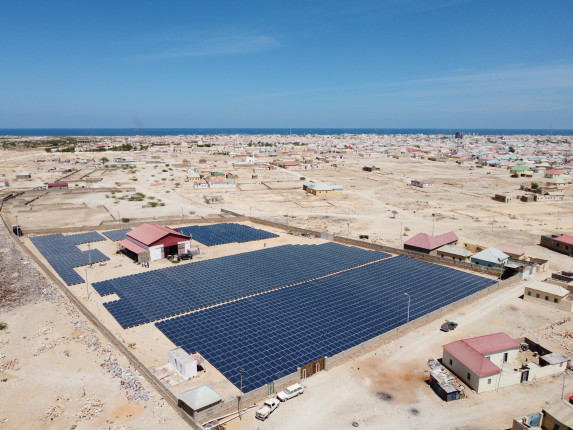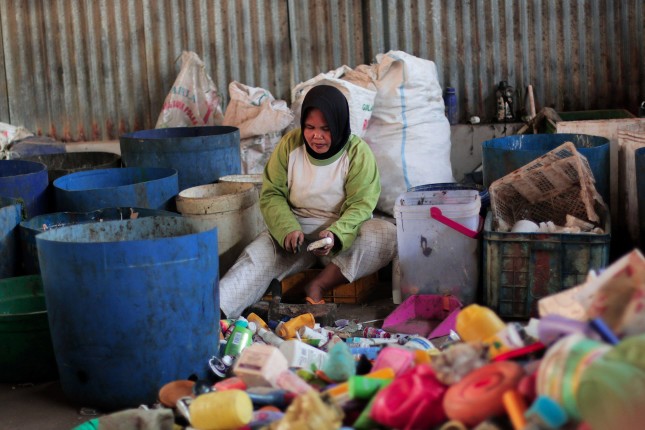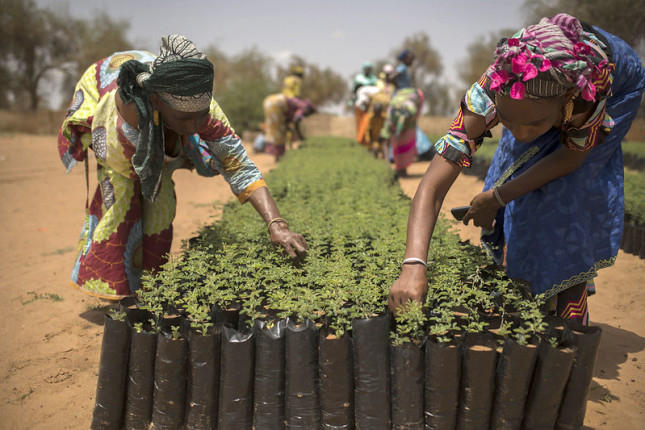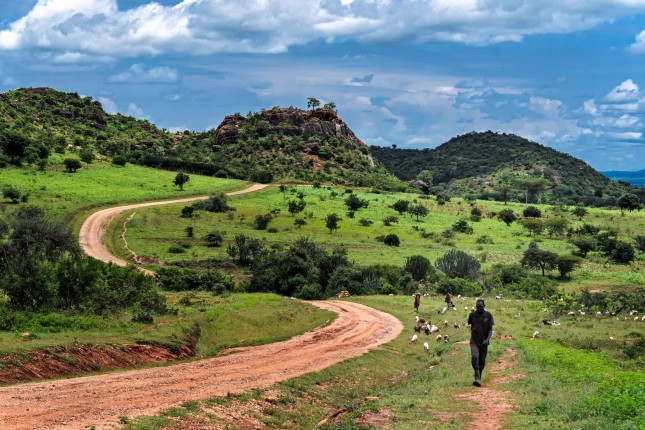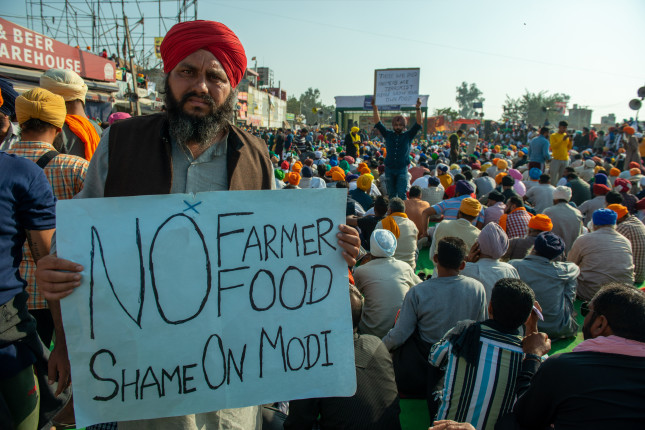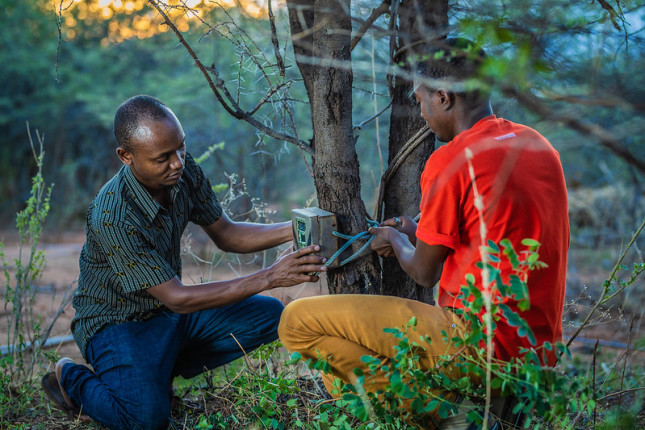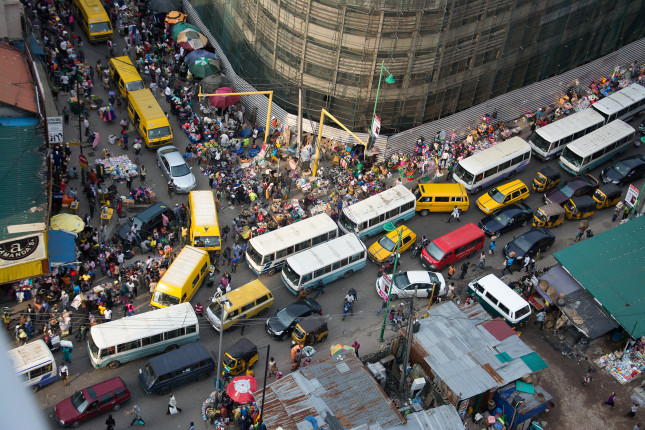-
Women with Disabilities in Nigeria’s Mining Industry: Discrimination and Opportunities
›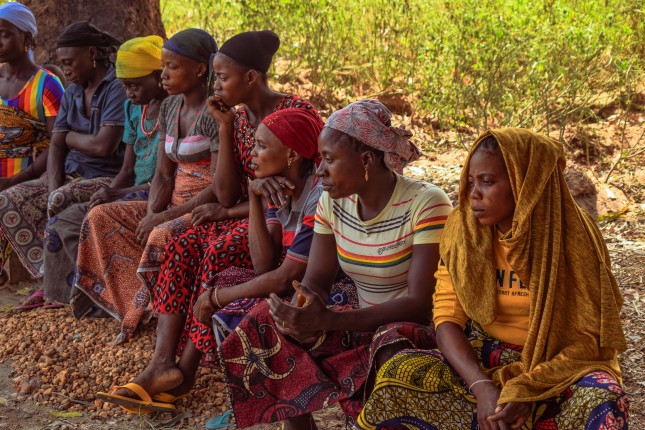
Women and girls with disabilities worldwide are subject to multiple forms of discrimination—a fact that the 2022 International Day for Persons with Disabilities brings into sharp focus. Yet while all people with disabilities (PWD) face exclusion and widespread stigma, women face the additional burden of exclusion from full participation in economic and cultural activities. Both forms of discrimination result from the collaboration of outdated laws and prevalent societal stigmatization.
-
Can Law Prevent the Green Resource Curse in Sub-Saharan Africa?
›
The transition to a carbon-neutral economy will bring profound shifts to diverse economic sectors. This transformation will generate increasing demands for land for renewable energy generation and the minerals needed for clean energy technologies.
-
The Apps Helping Indonesia’s Waste Collectors
› -
A Conflict Prevention Agenda Should Inform Climate Change Actions in Africa
›
In Africa, climate change and population expansion are increasing fragilities and vulnerabilities—including contributing to conflict dynamics—for many people who directly depend on nature. To cope with how their environment can no longer supply livelihood needs, people are migrating in search of security or economic stability. These factors interact with one another in ways that underline the need for inclusive conflict mitigation considerations in climate change action.
-
“Land is Now the Biggest Gun”: Climate Change, Conflict, and the Telling Case of Karamoja, Uganda
›
Whether and how climate change drives conflict has driven considerable debate over the past decade. Yet understandings of climate-conflict remain general, and in many respects, unsettled. A recent assessment of potential future directions for climate-conflict research highlights the need to go beyond generalities and deepen insight into the contextual mechanisms that link climate change to conflict. That type of knowledge requires in-depth studies that trace climate-conflict dynamics in particular places and times. In an article recently published in Climate and Development, I examine how climate change alters conflict outcomes and vulnerability in Karamoja, Uganda. The case offers direct insight into both why the climate-conflict relationship can be so difficult to interpret and also the need to broaden conceptualizations of the climate-conflict relationship.
-
Zafar Imran, Le Monde diplomatique
Climate Change in the Indian Farmers’ Protest
›
The ongoing farmers’ movement in India has taken the world’s largest democracy by storm. Hundreds of thousands from all over the country have laid siege to New Delhi for more than two months. As both the protestors and the government dig their heels in, the chances of confrontation and violence are increasing by the day.
-
Why Securing Youth Land Rights Matter for Agriculture-Led Growth in Africa
›
Africa’s “youth bulge” represents both an enormous challenge and a tantalizing opportunity for the continent. With over 60 percent of Africans under the age of 35, governments are under increasing pressure to grasp the “demographic dividend” youth represent to boost agricultural productivity, enhance food security, and expand economic opportunities for young men and women. Each year, about 10-12 million young Africans aged 15-24 enter the labor market, but only 3.1 million formal wage jobs are generated, pushing millions of youth into low paying and precarious informal employment.
-
Why Secondary Cities Deserve More Attention
›
Mention London, Rome, or New York, and people immediately conjure up Big Ben, the Colosseum, the Statue of Liberty. Beijing, Cairo, Mumbai? Check. They’ve heard of them. Megacities, the ones with lots of history, lots of people, and an oversized impact on the economy and culture, tend to be well-known.
Fewer people may know much about Addis Ababa, Dhaka, Lagos, or São Paulo — yet many would recognize the names. But who knows or has been to Darkhan, Mongolia or Santa Fe, Argentina or Boké-Kamsar in Guinea?
Showing posts from category livelihoods.


